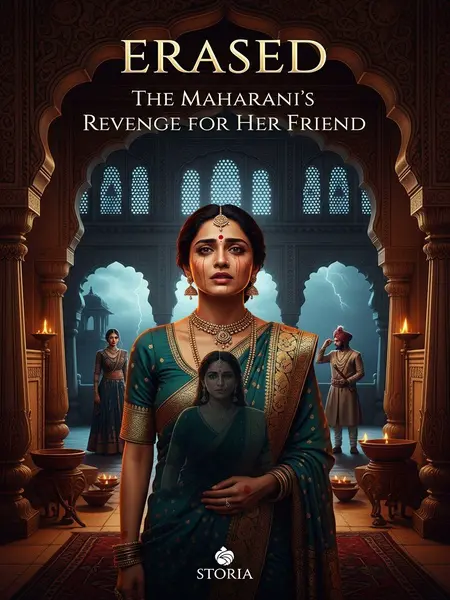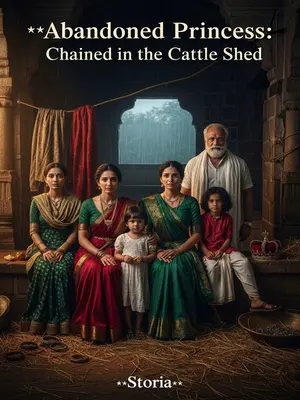Chapter 1: The Arrival in the Storm
My only friend in this sprawling palace was a woman the world called mad—a woman who arrived during a power cut, her sari drenched, lightning crackling outside as if the monsoon itself had carried her here. The first time we met, I was staring out at the rain through latticed windows, the only sound the distant rattle of thunder and the relentless ping of WhatsApp notifications from people who didn’t really know me.
Sometimes, when the monsoon clouds would rumble outside and the scent of wet mitti seeped into the marble halls, Meera would slip quietly to my side, her sari still damp at the hem, her eyes shining with a calm that made me feel seen. She believed in me, protected me, and gave everything to help my husband become king. No one else ever noticed that side of her—the way she put my future before her own—but I did. In those soft, rain-washed moments, sharing a cup of masala chai, she’d tease me about using too much sugar, sometimes reaching over to wipe a stray drop from my lip, her laughter bubbling like the chai itself. I’d wonder then what kind of world could have sent a woman like her into my life.
At the end of her story, Meera found someone who loved her deeply. I remember the change in her—the way her smile lingered longer, her laughter echoing through the marble corridors and out to the gardens where even the peacocks seemed to notice. The servants whispered about how the flower garlands in her hair looked brighter, how her bangles clinked with a lighter, happier music. She’d say this palace made her feel warm, and that she wished to stay in this world.
But later, I rushed back from the border, riding through the night on the highway, the world blurring past. My dupatta snapped in the wind, cold biting through my bones as I leaned low over my horse, heart hammering. I ignored the toll naka guards shouting after me and the glare of lorry headlights. There was no time—not with that ache in my chest and Meera’s name burning on my tongue.
Yet all I found was her pale, thin body lying alone in the marble coffin, cold as ice. White cloths draped over the mirrors, incense sticks burning low, and the echo of shlokas from the temple courtyard. The air inside the palace was thick with agarbatti, but no fragrance could mask the chill that wrapped around her. Her lips, always ready with a kind word, were silent now. The marble gleamed, and I saw myself reflected—a shadow, empty, reaching out in vain.
Beside the coffin, her husband stood there in a daze, silent. Raghav’s lips trembled, but he didn’t cry. Instead, he pressed his forehead to the edge of the coffin, whispering a prayer only Meera would understand. His kurta was wrinkled, eyes rimmed red, but he refused to look at her face. The silence was so deep I could hear the tick of the old wall clock, each second an insult to her absence.
Her young child whispered with relief, “Thank goodness, I don’t want such a crazy mother.” My hand jerked to my chest. I wanted to slap him, to shout, but the words died in my throat—what had they done to this child? Somewhere outside, a koel called, its song sharp and mocking in the stillness.
I looked at the woman standing next to their father and son, pretending to cry. Her dupatta was pulled high over her face, but I caught the quick sideways glance—checking if the elders were watching, if the camera phones were out. She pressed a handkerchief to her face, careful not to smudge her kajal. But beneath that mask, I saw the faintest smirk.
I thought to myself, I no longer need to pretend. After today, they will see what a real madwoman is. I let my hair fall loose, the way Amma always warned me not to—madness, they said, lives in a woman’s unbound hair.
I would not let them erase Meera. Not while I still breathed.











